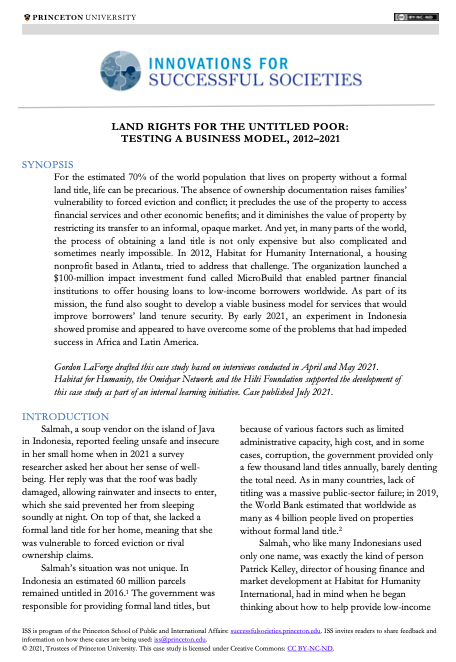Resource information
For the estimated 70% of the world population that lives on property without a formal land title, life can be precarious. The absence of ownership documentation raises families’ vulnerability to forced eviction and conflict; it precludes the use of the property to access financial services and other economic benefits; and it diminishes the value of property by restricting its transfer to an informal, opaque market. And yet, in many parts of the world, the process of obtaining a land title is not only expensive but also complicated and sometimes nearly impossible. In 2012, Habitat for Humanity International, a housing nonprofit based in Atlanta, tried to address that challenge. The organization launched a $100-million impact investment fund called MicroBuild that enabled partner financial institutions to offer housing loans to low-income borrowers worldwide. As part of its mission, the fund also sought to develop a viable business model for services that would improve borrowers’ land tenure security. By early 2021, an experiment in Indonesia showed promise and appeared to have overcome some of the problems that had impeded success in Africa and Latin America.
Gordon LaForge drafted this case study based on interviews conducted in April and May 2021. Habitat for Humanity, the Omidyar Network and the Hilti Foundation supported the development of this case study as part of an internal learning initiative. Case published July 2021.
For further reading on the MicroBuild Fund, see additional case studies(link is external) from the Grunin Center for Law and Social Entrepreneurship at the New York University School of Law.


